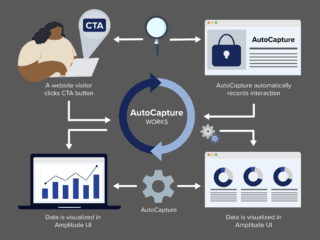Oh god it’s February. There’s going to be chaos in Vancouver as a million tourists pack onto public transit, line the streets, fill the locales. There’s going to be protests, armed guards, no parking— it’s going to be grand! Oh and there’s also some kind of sporting event or something going on…
In the internet marketing world we’ve got notes on how story telling can improve your user experience, stories about SEO algorithm chasers, the splintering of the internet and how redesign should actually your site.
Internet Marketing and SEO
- We start the week with an old favourite: Kim Krausberg writing for Search Engine Land, and writing about the algorithm chasers and how a chase to take top spots for trending topics failed inthe face of stories targeted to clicks, not bots.
- SEO Roundtable asks if too much keyword density be interpreted as boiler plate text, citing an odd Google Webmaster help thread.
Technology
- Emarketer suggests that Second Life is booming right now. Their user base 15%, and spending is up over $200m.God help us all.
- In one of the more interesting articles of the week, the Groundswell blog suggests that the golden age of the web is over, and now it’s splintering. They argue that proprietary technologies are killing the dream of a unified web. I am not sure I agree. In fact, many of the technologies they are talking about are built around the idea of integrating with other technologies more seamlessly. For instance, the iPhone displays web pages as they’re made, employing a ZUI to deal with sizes. A far cry from the micro readers of the cellphone/PDA world before it. Facebook has opened its API and is trying to convince people to make their information public, and other social networking apps are trying to stay open so that they can gain valuable SEO traffic—unlike the closed private forums of yester year. Sure, the iPad might not support flash, but flash itself was a proprietary technology, and there is a major move away from it starting (look at HTML 5 Youtube). Proprietary platforms are a problem, but lets not fool ourselves into thinking that these are new, or that they aer affecting the web in any kind of new way.
Web Analytics
- Kaushik is back with more Analytic ninjitsu: leveraging custom reports for better insights, which gives insights into setting up custom reporting based around website goals.
- Wingify presents 10 must read conversion optimization papers. As much as I hate to post top 10 lists, this one is absolutely great.
Web Usability
- Somerandomdude, who I’ve never heard of before, argues that a redesign means you should actually redesign, not just make your site prettier. It should be based around improving the usability of your content, and the workings of your site, not just the prettiness of your interface.
- From Smashing, how understanding storytelling can powerfully improve your user experience.
Miscellaneous links of the week:
- Scalzi, whom I have never heard of, has a post vaguely reminicient of my old Motrin Moms rant, on how badly Amazon failed this weekend. As some one who wasn’t paying attention to the weekend drama, I’m finding this immensely entertaining, partially because of Scalzi’s entertainingly snide writing style but mostly because of Amazons sheer unadulturated stupidity.
- Is our children learning? Social Media Today sez no. Actually my old alma mater is saying it. The thing to remember in this situation though is that there is a double standard coming from the university: school administrators are being driven by business objectives (SFU was notorious for firing their academic administrators and brining new ones in from the business community) not academic objectives, leading them to allow students in who do not reach the written English requirements for a university. Meanwhile, the academics are complaining that students can not write. You can blame technology all you want, but in the end if administration isn’t telling students that they need to know more in order to enter then students are not going to know learn more before they do. Oh and don’t get me started on “propper grammar” versus “effective grammar”.

















